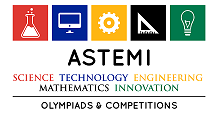South African Physics Olympiad, SAPhO
Overview
Physics underpins all sciences, so no matter what science one wants to study, Physics will be an important part of that. The International Year of Physics in 2005 had the aim of raising the awareness and importance of Physics, and a spin-off from this was the launching of the South African Physics Olympiad, SAPhO. Today it attracts entries from across South Africa and neighboring countries. The main objectives are to: identify students with ability in Physics raise the awareness of Physics to show how Physics impacts on our daily lives encourage students to study Physics
Entry requirements
Students who do well in other National Physical Science Olympiads are selected and invited to write the SAPhO. Entry is free.
Host
The South African Institute of Physics (SAIP)
How it works
This is an online exam and procedural details will be sent to the invited learner’s school well in advance. On the morning of the exam, the log-on details are sent to the school whose learners have been invited to write SAPhO. The paper consists of 50 multiple-choice questions, with five alternatives and is to be completed in 90 minutes. It covers Physics that is in the CAPS curriculum and beyond.
Cost
R18 once-off registration fee for each learner, plus R16 per learner for each subject being written.
Awards
Winner receives the SAIP Medal, a Gold Certificate and a prize, whereas, second place receives a Silver Certificate and a prize and third place receives a Bronze Certificate and a prize. Merit Certificates are awarded to those who score lower than third place but higher than 60% and Honourable Mention Certificates are awarded to those who score between 60% and 50%. All others receive Certificates of Participation. The top three are invited to the Annual SAIP Conference Gala Dinner where they are awarded their prizes.
Competition timelines
SAPhO is written on the first Monday afternoon of the National Science Week each year (July or August).
Supported by
SAIP, SAASTA and the National Institute of Theoretical Physics, NITheP
